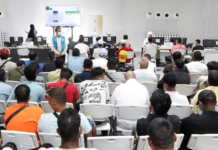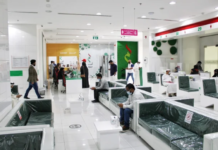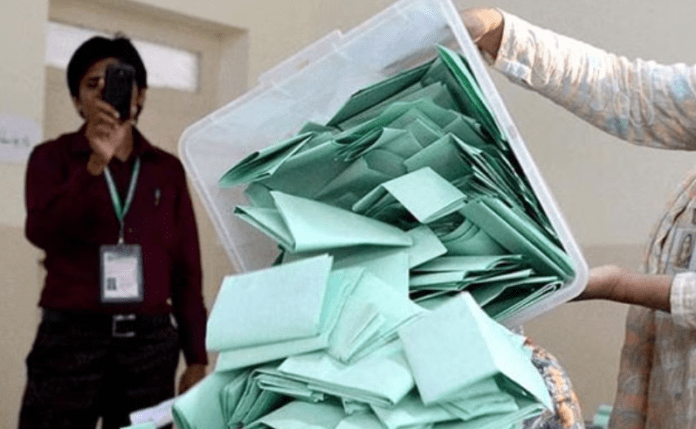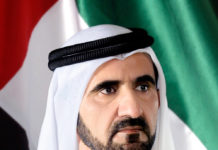The UAE News Report:
| National Assembly | Punjab Assembly | Sindh Assembly | KPK | Balochistan Assembly | |
| IND (PTI) | 98 | 127 | 86 | 6 | |
| PPP | 52 | 10 | 82 | 3 | 9 |
| PML (N) | 69 | 132 | 5 | 7 | |
| JUI(F) | 02 | 7 | 5 | ||
| MQM | 15 | 21 | |||
| ANP | |||||
| IND | 02 | ||||
| PMLQ | 5 | ||||
| JI | 3 | ||||
In PS-77, Murad Ali Shah of PPP won with 66,100 votes
In Sindh PS13, Adil Altaf of PPP won with 89,824 votes
In Sindh, PS68, Muhammad Halipota of PPP won with 57,540 votes
In Sindh, NA225, Sadiq Ali Memon of PPP won with 55540 ovtes
In Punjab, PP 252 Shoaib Owaisi of PMLN won with 43,720 votes
In Balochistan, PB51, Ashar Khan of ANP won with 20,700
In Balochistan, PB10, Mir Sarfaraz Bugti of PPP won with 41,300
In Balochistan, PB42, Abdul Khaliq of HDP won with 7,200
PPP at 2am announced victory in Sindh with a simple majority. Former Chief Ministers of Sindh Murad Ali Shah, Sharjeel Inam Memon, and a couple of others from PPP have won.
In Sindh, PS 78, Sikandar Ali of PPP won with 46,870 votes.
In Punjab, PP151 Suhail Shaukat Butt of PMLN with 34,436 votes.
In Sindh, PS 27, Hala Russan of PPP won with 102,709 votes.
In Sindh, PS 07, Imtiaz Ahmed of PPP won with 61,510 votes.
In Balochistan, PB40, Qadir Ali of HDP won with 6,260 votes.
In KPK province, PK35, Taj Muhammad Tarand of PTI’s independent candidate won with 23,006 votes.
In Sindh’s PS-17, Nawabzada Burhadm of PPP won with 39,540 votes.
In Balochistan’s PB15, Saleem Ahmed Khosa of PML won with 24,936 votes.
Voting time finished at 5pm local time in Pakistan general elections 2024 but only five seats’ final results were announced until 1am local time.
As of now, preliminary unofficial results show leads for candidates affiliated with jailed former Prime Minister Imran Khan’s party Pakistan Tehrik-e-Insaaf (PTI).
Free and fair Pakistan general elections started on Thursday morning without mobile and Internet service across the country.
There are media reports that elections process could not started on time at some places due to non-availability of poling agents and election staff.
Imran Khan’s convictions
In the week before the elections, Imran Khan was sentenced to jail terms in three separate cases. On 30 January 2024, with the government seeking a death penalty, he was sentenced to 10 years in a case dealing with the handling of state secrets by Judge Abul Hasnat Zulqarnain. A day later, Judge Muhammad Bashir, sentenced him and his wife, Bushra Bibi, to a jail term of 14 years, along with a fine of Rs. 787 million (US$2.7 million) each for retaining a jewelry set that was a state gift from Saudi Arabia against an undervalued assessment from the country’s Toshakhana. The ruling also barred Khan from holding public office for 10 years. Two days later, Judge Qudratullah declared the marriage of Khan and his wife against Islamic law and sentenced both to prison for a term of seven years for allegedly solemnizing their marriage during Bushra’s Iddah period. The case was lodged on the complaint of Khawar Maneka, Bushra’s former husband, five years after her marriage to Khan.
All three trials were held behind closed doors in Adiala Jail, where Khan has been incarcerated since August 2023 on corruption charges, and were marked with rushed proceedings, sudden replacement of defendant’s lawyers with state consuls, and other procedural irregularities that led his party to term the decisions to be coming from “kangaroo courts”.
Khan’s sentencing in the marriage case was decried by lawyers and members of the civil society as an overreach and a blow to women’s rights. Meanwhile, some observers termed the sentencings as a continuation of Pakistani military’s engineering to keep Khan out of power in the upcoming elections.
PTI de facto ban through intra-party election verdict
On 22 December 2023, the Election Commission of Pakistan (ECP) decided against allowing the PTI to keep its electoral symbol, asserting that the party had failed to conduct intra-party elections to the Commission’s satisfaction. Subsequently, on the same day, the PTI appealed to the Peshawar High Court (PHC) challenging the ECP’s decision. Consequently, a single-member bench suspended the ECP’s order until 9 January 2024. On 30 December 2023, the ECP submitted a review application to the PHC. In the following days, a two-member bench lifted the suspension order while hearing the case. However, on 10 January 2024, the two-member bench deemed the ECP’s order “illegal, without any lawful authority, and of no legal effect.” Responding to this, on 11 January, the ECP contested the ruling in the Supreme Court.
On 13 January, a three-member bench, headed by Chief Justice Faez Isa, sided with the ECP, reinstating their initial decision to deny the PTI its election symbol, the cricket bat, due to the party’s failure to conduct intra-party elections in accordance with its constitution. Consequently, the PTI was unable to allocate party tickets to any of its candidates, resulting in all party candidates being listed as independent candidates with individual electoral symbols. The party also lost the right to nominate candidates for 226 reserved seats across the central and provincial legislatures.
The SCP’s decision led some legal experts to describe the ruling as a “huge blow to fundamental rights” and “a defeat for democratic norms.”
Return of Nawaz Sharif
In May 2023, the Pakistan Democratic Movement (PDM) government adopted a law that allows for filing of review petitions against prior Supreme Court verdicts.
At the end of June, another law, limiting disqualification to five years, was adopted. It also allows the electoral commission to announce the date of an election without consulting the President of the country.
After serving 12 months of his 7-year sentence on corruption charges, former prime minister, Nawaz Sharif had left the country on 19 November 2019 for receiving medical treatment in London, promising to return in 4 weeks.
He was declared a fugitive in 2021 after failing to appear before courts despite summons. Sharif obtained protective bail on 19 October 2023, which allowed him to return from 4 years of self-imposed exile without being arrested. On October 21, he returned to the country where he was welcomed in Lahore by a gathering of tens of thousands of his supporters.
On 9th January 2024, a 7-member Supreme Court bench under Chief Justice Qazi Faez Isa, hearing a review petition against lifetime disqualification, announced a 6-1 majority verdict with Justice Yahya Afridi dissenting. The verdict set aside the earlier Supreme Court interpretation of lifetime disqualification for the article 62(1)(f) of the constitution, stating that it violated fundamental rights, and instead set a 5-year disqualification in accordance with the newly passed laws for lawmakers who fail the moral standard of “sadiq and ameen” (honest and righteous).[44] The timing of the verdict ensured that Sharif, who was disqualified for life in the Panama Papers case in 2017, is eligible to contest these elections with a possible fourth term as prime minister.
General Elections 2018
In Pakistan, general elections were held on 25th July 2018 after the completion of a five-year term by the outgoing government of Pakistan Muslim League (N). At the national level, elections were held in 272 constituencies, each electing one member to the National Assembly. At the provincial level, elections were held in each of the four provinces to elect Members of the Provincial Assemblies (MPA). As a result of the elections, the Pakistan Tehreek-e-Insaf (PTI) became the single largest party at the national level both in terms of both popular vote and seats. At the provincial level, the PTI remained the largest party in Khyber Pakhtunkhwa (KP); the Pakistan Peoples Party (PPP) remained the largest party in Sindh and the newly-formed Balochistan Awami Party (BAP) became the largest party in Balochistan. In Punjab, a hung parliament prevailed with Pakistan Muslim League (N) (PML-N) emerging as the largest party in terms of directly elected seats by a narrow margin. However, following the support of Pakistan Muslim League (Q) and the joining of independent MPAs into the PTI, the latter became the largest party and was able to form the government.









































